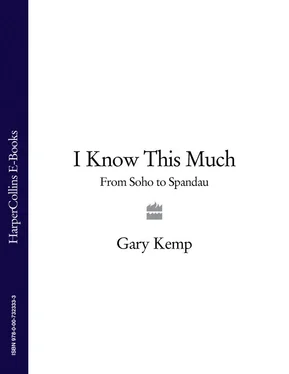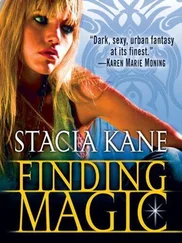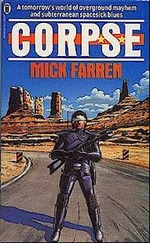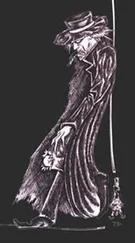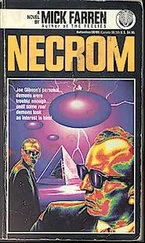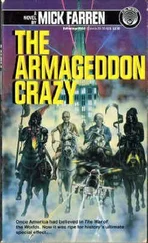My paternal grandfather, Walter, wounded out of Flanders, had become disabled from his work at a veneering factory after a swinging tree trunk delivered itself into his shrapnel-softened leg. Jobless and desperate, he and Eliza created and ran a business from the kitchen of the rooms they rented above a mews garage in Islington. There, the two boys, Frank and Percy, along with Eliza’s father, Granddad Crisp—a hansom cab driver and a man whose photos prove that braces always need a belt for extra security—would bag up nuts and sweets and help Eliza make toffee apples to sell to the queues outside the nearby Collins’ Music Hall. It kept the Kemps fed and housed, but unfortunately, when the SecondWorldWar came, Eliza’s little helpers were soon considered to be in danger from the new threat of German bombing raids. Equipped with gas masks, the two boys made their way through crowds of weeping mothers to Highbury and Islington station and a two-year stay away from home.
One evening, during the London Blitz, a Luftwaffe pilot caught in ‘ack-ack’ fire evacuated his payload of bombs. Below him was Walter, tall and lean, quickly making his way home through the empty streets, the sky above alight with tracer. Within seconds the eight bombs had landed around him, sucking him into the huge hole they’d created in the road. Luckily the bombs didn’t detonate and, dazed, he crawled out and back to Eliza. But Walter’s nerves were forever blown apart. Afterwards, he became wrecked and sleepless, and my father would often see the red glow of his cigarette as he lay smoking in bed through many a long night.
Unfortunately my father and mother were experiencing another hell. Both tell similar evacuation stories of beatings, accusations of stealing, and destroyed or censored letters home. Sadly for my mother it would end at the age of nine, in a breakdown of bed-wetting, fear of noise and inconsolable night-crying. While they were both away, two bombs fell silently through the London night sky and destroyed each of their family homes and any evidence of their younger lives.
Walter and Eliza were temporarily relocated to the relatively peaceful suburb of Finchley, and Frank was granted his wish to return from rural exile to his family. His war was not over, though, and as a Boy Scout he was drafted into the role of stretcher-bearer at Finchley Memorial Hospital. On 6 June 1944, D-Day, a heavy raid delivered itself in retaliation upon the city. Frank carried eight dead bodies, young and old, into the morgue that evening, at one point having to shuffle them around to fit them all in. Later that night he lay sleepless in his bed, listening to Allied planes making their way to France and the final act of the war.
With the war over, the Kemp family returned to Islington and new rooms in Rotherfield Street, rented from a local landlord. But the brothers would still have to replace the walls and ceilings themselves, as a doodlebug had dropped in the street and partially destroyed them. They took the top floor, their parents’ brass bed set up in the living room creating a centrepiece reminiscent of Roald Dahl, but in reality it was nothing but cramped and stifling. On the floor below, even more Dahl-esque, lived two ‘filthy old boys’, as my father called them.
Sadly, the family didn’t have the means to indulge Frank’s aspirations or potential, and his desires to stay on at school beyond fourteen and become a journalist were impossible even to contemplate. So Frank was sent to work as a printer—ironically, printing ruled lines onto paper for others to write on. In 1952, after his two years in National Service, he returned to the print and a blind date with a shy, Irish-faced girl from the New North Road called Eileen Green. Their first evening together ended with what must have been a memorable visit to the London Palladium to see Little Richard perform. A few dates later and they were helping to shake its Grand Circle up and down while watching Bill Haley and the Comets. Somewhere between the rock and roll they fell in love.
On Eileen’s first visit to her new boyfriend’s house she was welcomed at the front door by one of the resident ‘old boys’. Wrapped against the cold in ancient grey clothes and carrying an oil lamp in his greasy fingers, he beckoned her in, slowly guided her up the narrow stairs, and pointed her on past their own stinking rooms towards the top floor and the waiting Frank. The fragile Eileen swore she would never come again to this decrepit place, but eventually married Frank, and, as a proud virgin in white, moved into the house on their wedding night. Awkwardly undressing for bed, she broke the gas mantle, casting them both, gratefully, I’m sure, into darkness.
Eventually, they rented two rooms on the floor below and uncomfortably shared the kitchen with the elderly gents, now in their nineties, who infuriated Frank with their habit of keeping coal piled in a corner of the landing outside their door. Thankfully, the two nonagenarians soon shuffled off their shabby mortal coils, and with my arrival my father took over their space and turned it into a bedroom for me, giving his new family the whole floor.
Almost two years later my brother was born in my parents’ bedroom. My father looked after me, banned, like all men of his time, from the proceedings, while two midwives and a doctor saw Martin into the world.My mother had chosen to haveMartin at home, not for any holistic purpose or lack of NHS service, but because she couldn’t leave me, as my father was unable to take time off work. Unfortunately, Martin was thought to be a ‘blue’ baby—meaning he might have a potentially fatal blood condition—and was immediately rushed to hospital. When cleared, he would return home to two murder attempts from his brother.
The first was more of an experiment. He was asleep in his cot and my fury at his satisfied, gurgling presence was unbounded. I must have realised his breathing was essential to life because first I poured the remains of a pot of Lyle’s Golden Syrup on to his face, and then, pleased with my initial syrupy delivery, followed it with a bowl of sugar—a fine recipe for suffocation, I thought. He would at least enjoy it while it lasted. I watched little sweet bubbles form and pop around his mouth and nostrils and then suddenly there was a room full of screams, a crying baby, and a punished, whimpering child. I’d failed. This time.
A few weeks later I took my chance again. A sunny day meant a stroll to the New River Walk, a faux little brook that was actually designed to bring in fresh drinking water to thirsty Londoners but was now a favourite haunt of new mothers. Outside our house my old perambulator proudly stood with its new incumbent tucked tightly inside. My mother went back to shut the door and I took my chance. I grabbed the handlebar and shoved the huge beast of a pram into the road. A woman passing by screamed as it flew from the kerb, tipped backwards onto its canopied end and, wheels spinning helplessly in midair, came to a stop. But so swaddled was Martin that he never moved from the security of the covers, his head safely cushioned by the pillow, and within seconds my mother had him and the pram back on the pavement. With a stinging arse I saw that he was blessed, and probably worth keeping.
Below us, on the ground floor, the landlord had his rental office, and one day a week a line of people would snake through our ‘passage’ to pay their rent through a hole in the wall, a public encroachment which never seemed to bother us, although my mother would struggle to push her pram past the grumbling tenants. On a wet day they’d all cram into the narrow hall for protection, filling the house with the smell of damp clothes and the murmuring of local rumour. Under all of this, in the basement, lived an elderly woman, who eventually filled the house with a fetid stench of her own, alerting us to her lonely death.
Читать дальше
